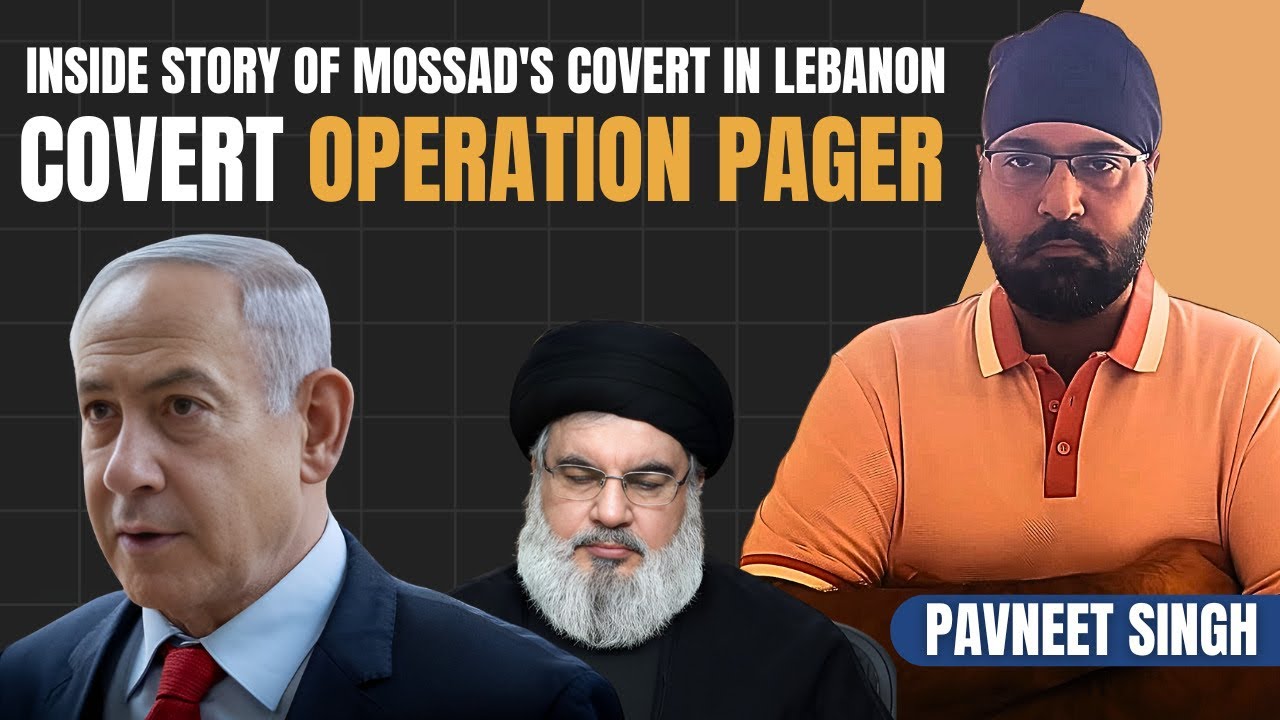How Iran Fights — and Aligns With — Terrorists | The New York Times
Summary
TLDRThe video script discusses Iran's complex counterterrorism strategies, which include backing Shiite militant groups like Hezbollah to extend influence and counter U.S. presence. It highlights Iran's pragmatic relationship with al-Qaeda, cooperating when it suits their mutual anti-American goals. The script also touches on Iran's intelligence efforts, outreach to Sunni communities, and the role of the Quds Force in both combating terrorism and supporting allied militant groups. Despite these measures, Iran remains a target for terrorist attacks.
Takeaways
- 🇺🇸 The United States has long accused Iran of exporting terror.
- 🇮🇷 Iran has been a target of attacks for decades and uses elaborate counterterrorism methods.
- ⚔️ Iran supports Shiite militant groups like Hezbollah to counter its enemies beyond its borders.
- ☯️ Iran has harbored al-Qaeda members, creating a marriage of convenience despite differing ideologies.
- 🇺🇸 Both Iran and al-Qaeda aim to undermine the United States and reduce its influence in the region.
- 🆚 Iran worked with the U.S. to combat al-Qaeda during the 2001 Afghanistan invasion but can't ally with ISIS due to sectarian differences.
- 💥 ISIS has attempted to establish an Iran affiliate and carried out thwarted attacks in Iran.
- 🔍 Iran's Ministry of Intelligence and Security conducts extensive intelligence gathering for counterterrorism.
- ⚖️ Critics argue that Iran's intelligence operations also target political dissidents and opposition groups.
- 🤝 Iran employs a three-pronged approach to foster good relations with its Sunni minority, including economic development and outreach to Sunni clerics.
- 🛡️ The Quds Force, led by General Qasem Soleimani, is an elite unit involved in counterterrorism and supporting groups like Hezbollah outside Iran.
- 🎖️ General Qasem Soleimani has become a public figure, showcasing Iran's efforts against ISIS through social media.
- 🎯 Despite its measures, Iran remains a target of terrorist attacks.
Q & A
What has the United States historically accused Iran of?
-The United States has historically accused Iran of exporting terror.
How has Iran been a target of terror attacks?
-Iran has been a target of terror attacks for decades, and its leaders have developed elaborate counterterrorism methods to address this issue.
What is one way Iran counters its enemies in the region?
-Iran counters its enemies in the region by backing Shiite militant groups like Hezbollah, which take the fight to hotspots beyond Iran's borders.
How has Iran's relationship with al-Qaeda been characterized?
-The relationship between Iran and al-Qaeda is described as a marriage of convenience, where they cooperate when it suits their interests, such as minimizing the United States' influence, but have conflicting interests on other matters.
Why can't Iran work with ISIS like it did with al-Qaeda?
-Iran can't work with ISIS like it did with al-Qaeda because ISIS is anti-Shiite, which is fundamentally opposed to Iran's interests and identity.
What is Iran's approach to intelligence gathering in counterterrorism?
-Iran's intelligence gathering is headed by the Ministry of Intelligence and Security, which arrests and interrogates individuals suspected of having ties to opposition separatists and terrorist groups.
How has Iran's intelligence gathering been criticized?
-Critics argue that Iran's intelligence gathering is a double-edged sword, as it has been used to monitor political dissidents and suppress opposition to the government.
What is Iran's approach to the Sunni population within the country?
-Iran has adopted a three-pronged approach to the Sunni population, playing nice by trying to convey that Iran is not a sectarian player, reaching out to Sunni clerics, and boosting economic opportunities and development in Sunni areas.
What is the role of the Quds Force in Iran's counterterrorism strategy?
-The Quds Force is an elite arm of the Revolutionary Guards that operates outside Iranian borders, working with groups like Kurdish forces and Shiite militias to counter groups like ISIS and cause trouble for American and Western entities involved in Middle Eastern conflicts.
Who is the leader of the Quds Force and what has been his role?
-General Qasem Soleimani is the leader of the Quds Force and has become an icon in Iran, publicizing his involvement in the fight against ISIS through selfies in Iraq and Syria.
Despite counterterrorism measures, why does Iran remain a target?
-Despite its counterterrorism measures, Iran remains a target due to its geopolitical position, its support for certain militant groups, and its adversarial relationships with other regional and global powers.
Outlines

Dieser Bereich ist nur für Premium-Benutzer verfügbar. Bitte führen Sie ein Upgrade durch, um auf diesen Abschnitt zuzugreifen.
Upgrade durchführenMindmap

Dieser Bereich ist nur für Premium-Benutzer verfügbar. Bitte führen Sie ein Upgrade durch, um auf diesen Abschnitt zuzugreifen.
Upgrade durchführenKeywords

Dieser Bereich ist nur für Premium-Benutzer verfügbar. Bitte führen Sie ein Upgrade durch, um auf diesen Abschnitt zuzugreifen.
Upgrade durchführenHighlights

Dieser Bereich ist nur für Premium-Benutzer verfügbar. Bitte führen Sie ein Upgrade durch, um auf diesen Abschnitt zuzugreifen.
Upgrade durchführenTranscripts

Dieser Bereich ist nur für Premium-Benutzer verfügbar. Bitte führen Sie ein Upgrade durch, um auf diesen Abschnitt zuzugreifen.
Upgrade durchführenWeitere ähnliche Videos ansehen

What is Hezbollah and how is it linked to the Israel-Gaza war? | Start Here

Five reasons why Iran is involved in so many global conflicts - BBC World Service

Hamas, Hezbollah, Houthis - Iran's proxies at work - The Global Jigsaw podcast, BBC World Service

The Death of Sinwar & the End of Zionism

Operation Pager- Inside Story of Mossad in Lebanon

'The Israelis are going after target, after target' | Professor Michael Clarke analysis
5.0 / 5 (0 votes)
